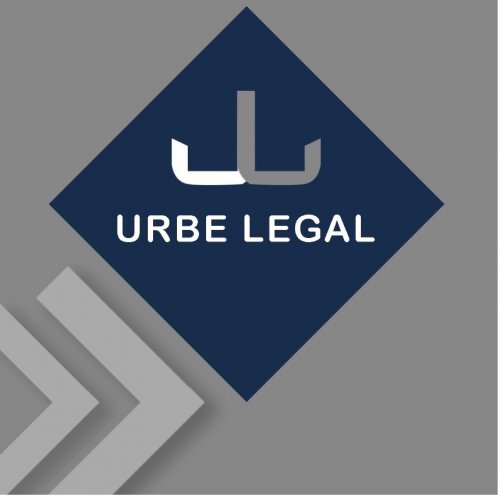Best Natural Resources Lawyers in Guatemala City
Share your needs with us, get contacted by law firms.
Free. Takes 2 min.
List of the best lawyers in Guatemala City, Guatemala
About Natural Resources Law in Guatemala City, Guatemala
Guatemala is a country rich in natural resources, with significant reserves of minerals, forests, and water bodies. Guatemala City, as the capital and largest city, acts as a hub for legal and commercial activities related to the exploitation and conservation of these resources. Natural Resources Law in Guatemala encompasses regulations related to the use, management, and protection of the country's natural wealth, addressing issues like mining, forestry, water use, and biodiversity conservation. With increasing global and local demands for sustainable development, legal frameworks have evolved to balance resource exploitation with environmental protection.
Why You May Need a Lawyer
Individuals, businesses, or organizations may seek legal assistance in the field of natural resources for several reasons:
- Obtaining licenses or permits for resource exploration and extraction.
- Navigating environmental regulations and compliance measures.
- Settling disputes over land and resource ownership.
- Addressing legal challenges related to the impact of resource extraction on local communities.
- Implementing sustainable practices in line with national and international policies.
- Advising on corporate social responsibility and environmental impact assessments.
- Defending against claims or lawsuits for environmental damage.
- Assisting NGOs and local communities in advocacy and legal actions.
Local Laws Overview
Guatemala's legal framework for natural resources is extensive and includes the following key aspects:
- Mining Law: Governs the exploration and extraction of minerals. Key provisions relate to licensing procedures, environmental obligations, and royalties.
- Forest Law: Focuses on the management and conservation of forest resources, including the issuance of permits for logging and reforestation mandates.
- Water Law: Regulates the use of water resources, including rights for consumption, irrigation, and industrial use, as well as pollution control measures.
- Environmental Protection Law: Provides frameworks for environmental impact assessments, conservation measures, and pollution control.
- Land Ownership Law: Addresses land rights, particularly for indigenous communities, with implications for resource exploitation.
Frequently Asked Questions
What permits are needed to extract minerals in Guatemala?
To extract minerals, you must obtain a mining concession from the Ministry of Energy and Mines, which involves an exhaustive application process including environmental impact studies.
How can companies ensure compliance with environmental regulations?
Companies must conduct Environmental Impact Assessments (EIAs), adhere to ongoing monitoring processes, and implement mitigation strategies as outlined by local regulations.
Are there special considerations for indigenous lands?
Yes, the law requires obtaining free, prior, and informed consent from indigenous communities where resource extraction might impact their lands.
What are the penalties for illegal logging?
Illegal logging is punishable by fines, imprisonment, and the confiscation of equipment. Repeat offenders face harsher penalties.
How is water use regulated for agricultural purposes?
Water use for agriculture requires a permit, and users must adhere to volume and seasonal limitations to promote sustainable use.
Can communities block resource extraction projects?
Communities can legally challenge projects if they threaten the environment or violate land rights, often resulting in arbitration or court proceedings.
What role does the Ministry of Environment play?
The Ministry of Environment oversees environmental protection regulations and compliance, playing a crucial role in the approval and monitoring of resource projects.
How do I address pollution caused by a nearby factory?
You can report the issue to local environmental authorities and, if necessary, pursue legal action for compensation or remediation through the courts.
What rights do landowners have over discovered resources?
Ownership varies; while landowners may have rights to surface resources, subsurface rights often belong to the state, requiring governmental approval for extraction.
Is renewable energy encouraged by Guatemalan law?
Yes, there are incentives for renewable energy projects, with legal frameworks designed to facilitate and promote investment in this sector.
Additional Resources
For further assistance and information, the following resources can be beneficial:
- Ministry of Energy and Mines of Guatemala
- Ministry of Environment and Natural Resources
- Guatemalan Environmental Law Alliance
- Local universities with law or environmental programs
Next Steps
If you need legal assistance in natural resources, consider the following steps:
- Identify the specific legal issue or area of concern.
- Consult with a specialized lawyer or law firm with expertise in natural resources.
- Gather all relevant documents and information related to your case.
- Evaluate different legal strategies or solutions proposed by your lawyer.
- Engage with local communities or stakeholders if their interests may be affected.
- Monitor changes in laws and regulations that may impact your activities.
Lawzana helps you find the best lawyers and law firms in Guatemala City through a curated and pre-screened list of qualified legal professionals. Our platform offers rankings and detailed profiles of attorneys and law firms, allowing you to compare based on practice areas, including Natural Resources, experience, and client feedback.
Each profile includes a description of the firm's areas of practice, client reviews, team members and partners, year of establishment, spoken languages, office locations, contact information, social media presence, and any published articles or resources. Most firms on our platform speak English and are experienced in both local and international legal matters.
Get a quote from top-rated law firms in Guatemala City, Guatemala — quickly, securely, and without unnecessary hassle.
Disclaimer:
The information provided on this page is for general informational purposes only and does not constitute legal advice. While we strive to ensure the accuracy and relevance of the content, legal information may change over time, and interpretations of the law can vary. You should always consult with a qualified legal professional for advice specific to your situation.
We disclaim all liability for actions taken or not taken based on the content of this page. If you believe any information is incorrect or outdated, please contact us, and we will review and update it where appropriate.











